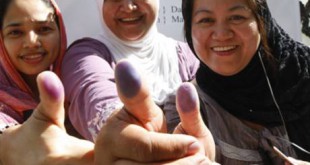Learn how to get permanent residency overseas as a skilled worker or professional.
By Crispin R. Aranda, executive director, Immigrant Visa Center
If you are looking to migrate or reside abroad, Australia, Canada, New Zealand, and the United Kingdom all offer permanent migration or residency options. To qualify, applicants must earn points based on age, education, experience, skills or training, and English proficiency.
You get bonus points if you are married, have qualified relatives residing in the country, and can immediately settle. You also gain more points if you have a pending job offer, have available settlement funds, or have studied or lived in the country for a specific period.
Points system
The total number of points you have to reach varies per country. Lower points or pass mark in a particular country will not necessarily give you an easier time gaining residency.
Australia. The Australian immigration system for skilled migrants (under the age of 45) is a rigorous one based on points. For those who don’t make the cut, they have the chance to apply for a temporary (three-year) visa and eventually apply for residence, provided they are prepared to live for two years and work at least 12 months in a regional or low population growth metropolitan area in Australia. This program requires sponsorship by a participating state or territory government or delegated Regional Certifying Body.
Canada. Like Australia, Canada provides sponsorship by regions or provinces. Residency applications in such cases take just eight to 10 months to process.
The country’s two residency routes—Federal Skilled Worker (FSW) Program and Provincial Nominee Program (PNP)—are both in the midst of change. The FSW is currently on hold. Those with applications (the backlog totals 925,000) are subject to the new Canadian Bill C-50, which authorizes the Canadian Minister of Immigration and Citizenship to:
- Come up with a list of priority skills and process those in the queue that match the list;
- Return applications not on the list and refund visa fees paid; and
- Retain other applications for future consideration.
The PNP is more adaptable to specific migration developments. A skilled worker or professional with skills considered in short supply may be sponsored by a Canadian province (e.g., Manitoba, British Columbia, Prince Edward Island). More provinces—Newfoundland and Labrador, Prince Edward Island, Nova Scotia, Saskatchewan—now also offer family-based migration, an option previously offered only by Manitoba.
New Zealand. The minimum requirement for residency is 100 points. You must express your intention to migrate and pay at least NZ$400 for online processing or $500 for paper-based application. A job offer will give you an additional 50 points. The pass mark for automatic selection for permanent residency is 140 points.
For work visas, New Zealand has one of the fastest processing times—only four to six weeks after getting a job offer and submitting your application with the New Zealand Embassy in Manila. The only disadvantage right now for Filipinos is the recently signed agreement between New Zealand and China that allows 1,800 Chinese workers to fill shortage occupations in New Zealand in return for export of NZ products to China. Chinese workers are now given preference over other foreign workers, including Filipinos. A new list, dated July 2008, contains the skills needed in New Zealand, both immediately and on the long term.
United Kingdom. The U.K. holds the highest standards (though not reflected in points) for skilled migrants or professionals. Its Highly Skilled Migrant Programme (HSMP)—along with the Work Permit categories—ended in November 2008 and has been replace with the 5-level (Tiers 1 to 5) migration points-based system.
As in Australia, the UK’s pass mark is 75-95 points. Those aged 32 and above, however, will find it extremely difficult to qualify, especially if they cannot show annual earnings in the P1.4-million bracket.
The other tiers, especially Tier 2, are more feasible for skilled workers, especially those eligible for qualification, certificate, or diploma through the National Vocational Qualification (NVQ) program. NVQ offers a work-based paid study program attractive to nurses and allied health care workers. Five years of lawful residency will allow a Filipino to apply for long-term residency.
Important qualifications
Age. As a general rule, countries with permanent residency programs prefer young, skilled, and talented workers with more productive years to contribute to the system. The U.K. sets its age limit at 32, Australia at 44, Canada at 52, and New Zealand at 55.
Experience. Longer years in employment or self-employment are relevant. The longer the work experience, the higher the points.
| Country | Points |
| Australia | 3 years’ experience in last four years = 10 points maximum |
| Canada | 1 year = 15 pts 2 years = 17 pts 3 years = 19 pts 4 years = 21 pts |
| New Zealand | 2 years = 10 pts 4 years = 15 pts 6 years = 20 pts 8 years = 25 pts 10 years = 30 pts |
Education
- In New Zealand, a bachelor’s degree gives you 50 points as long as your degree comes from an NZ-recognized school.
- Australia prefers experience, requiring only one year of post-secondary education. However, for skilled workers, Trades Recognition Australia (TRA), the assessing authority, changed its rule and disallowed purely job-acquired experience. The skills assessment criteria emphasize both apprenticeship and formal training periods. To qualify for assessment by TRA, you must pay almost Aus$2,000 and take a practical or trade test.
Family ties
In Australia and Canada, the following relationships are qualified to sponsor residency applicants: spouse, child, parent, sibling, aunt or uncle, first cousin, grandparent.
In New Zealand, close family relatives include son or daughter, parent, grandparent, sibling. In certain cases, having a spouse or partner in New Zealand earns bonus points for the applicant.
While the U.S. is the country of choice for Filipino nurses, the current category (EB3) is backlogged by two to five years. Even with a willing sponsor or employer and all the qualifications, including VisaScreen, you still have to wait for five years unless the retrogression is lifted—which may not be until the new administration is in place and America’s economy bounces from recession.For graduate nurses without PRC license, graduates of allied health care courses (midwives, medical technologists, psychologists, primary school teachers) with little or no experience, or those who completed the TESDA-certified 6-month caregiver course, the best option is the UK’s National Vocational Qualification (NVQ) program. The Immigrant Visa Center’s (IVC) partners in the UK will assess and assist applicants so that their appropriate course levels may be determined. After admission in an authorized college in the UK, IVC will also help applicants to get their student visas from the British Embassy in Makati.
The Filipino is now a true global citizen. There are about three million Filipinos in the United States; half a million each in Canada and Europe, including the United Kingdom; about 250,000 in Australia and 25,000 in New Zealand; and close to 10 million overseas workers in more than 120 countries.
But if you have no immediate or qualified relatives to sponsor or petition your permanent residency, what are your options as a skilled worker or professional?
In most countries, you need an employer to sponsor you. Your sponsoring employer must have the following qualifications:
- Authorized to conduct business and financially able to pay your salary at the same rate paid to citizens or permanent residents
- Must have a genuine job opening
- In certain cases, must prove that he has tried to advertise or recruit within the domestic market and found nobody qualified.
For a free assessment, log on to www.visacenter.orgor call (02) 634 8717 for a confidential one-on-one visa counseling. Watch Amerika, Atbp. on the web live. Log on to http://www.nbni.tv/ch-4-manila. Or view its TV program on NBN 4 or through Dish Network in the U.S., and worldwide on the web through Amerika, Atbp. wi-cast: 11 a.m. to 12 noon Sundays. In the Philippines, Amerika, Atbp. is also seen on Sky Cable TV 6 and Destiny Cable TV 8.
 Pnoys.com Online Community for Filipinos Abroad
Pnoys.com Online Community for Filipinos Abroad



